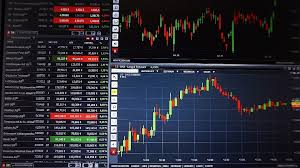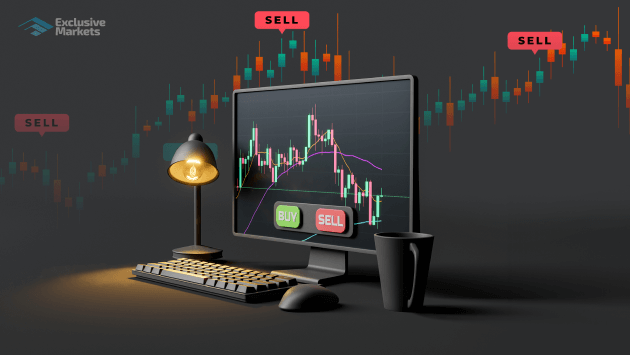
When it comes to trading, two prominent markets capture the attention of investors worldwide: Forex and stocks. Understanding the nuances of both can help you make an informed decision on where to allocate your capital. In this comprehensive article, we will examine the key differences between Forex trading and stock trading, their respective advantages and disadvantages, and tips for taking the plunge into either market. If you’re looking to learn more, check out trading forex vs stocks Trading PH.
What is Forex Trading?
Forex, or foreign exchange, is the global marketplace for trading currencies. It operates 24 hours a day, five days a week, and facilitates the exchange of one currency for another. At its core, Forex trading involves speculating on the price movements of currency pairs, such as EUR/USD or GBP/JPY.
Advantages of Forex Trading
- High Liquidity: The Forex market is the largest financial market in the world, with daily trading volumes exceeding $6 trillion. This high liquidity ensures that trades can be executed quickly with minimal slippage.
- 24-Hour Market: Unlike stock markets, Forex is open 24 hours a day, allowing traders to operate at any time that suits them, making it easier to react to global news and economic data releases.
- Leverage: Forex brokers offer significant leverage, enabling traders to control larger positions with a smaller amount of capital, which can amplify both profits and risks.
- Diverse Strategies: The nature of Forex trading allows for a wide range of strategies, from day trading to long-term investing, appealing to both short-term and long-term investors.
Disadvantages of Forex Trading
- High Risk: The use of leverage can lead to large losses as well as gains. It’s essential to have a solid risk management strategy in place.
- Complexity: Understanding macroeconomic factors, geopolitical events, and central bank policies is crucial for success in Forex trading, which can overwhelm beginners.
- Lack of Regulation: The Forex market is decentralized, meaning there is less oversight than in stock markets, which may expose traders to potential fraud or unregulated brokers.
What are Stocks?

Stock trading involves buying and selling shares of publicly-traded companies. When you purchase stocks, you essentially buy a piece of ownership in a company. The value of stocks can fluctuate based on a company’s performance, market conditions, and broader economic trends.
Advantages of Stock Trading
- Ownership in Companies: Investors gain a sense of ownership in the companies they invest in, and they may also receive dividends, providing an additional income stream.
- Regulation: Stock markets are heavily regulated, providing a level of security for investors against fraud and ensuring transparency in trading.
- Long-Term Growth Potential: Stocks have historically provided good long-term returns, allowing investors to capitalize on a company’s growth over time.
- Diversity: Investors can choose from a wide array of sectors and industries, enabling them to diversify their portfolios effectively.
Disadvantages of Stock Trading
- Market Hours: Stock markets have specific trading hours, which may limit the opportunities for traders who cannot monitor their investments throughout the day.
- Lower Liquidity: Compared to Forex, individual stocks may have lower liquidity, leading to potential delays in executing trades at desired prices.
- Understanding Fundamentals: Successful stock trading often requires a deep understanding of company fundamentals, which can take time and research to master.
Key Differences Between Forex and Stocks
Understanding the fundamental differences between Forex and stock trading is essential for making informed decisions:
- Market Hours: Forex operates 24/5, whereas stock markets open during specific hours, often limiting trading opportunities.
- Market Size: The Forex market dwarfs stock markets in terms of daily trading volume and liquidity.
- Leverage: Forex trading typically allows for higher leverage than stock trading, which can lead to greater risks and rewards.
- Types of Investments: Forex involves currency pairs, while stocks are investments in specific companies.

Which Market is Right for You?
Deciding between Forex and stocks depends on several factors, including your trading style, risk tolerance, and investment goals:
- New Investors: Beginners may find stock trading more approachable due to extensive educational resources and regulatory oversight.
- Active Traders: Those who prefer quick trades and have the ability to monitor the market continuously may thrive in Forex trading.
- Long-Term Investors: Investors looking for long-term growth may prefer stocks, particularly those that pay dividends.
Tips for Beginners
Regardless of the market you choose, consider these tips to enhance your trading experience:
- Education: Invest time in learning the basics and advanced strategies of your chosen market before putting real money at risk.
- Risk Management: Always have a risk management strategy in place to protect your capital. Use stop-loss orders and avoid over-leveraging.
- Demo Accounts: Utilize demo accounts to practice trading without risking real money. This experience is invaluable in honing your skills.
- Stay Informed: Keep abreast of economic news and market trends, as both can significantly impact your trading outcomes.
Conclusion
In conclusion, both Forex and stock trading present unique opportunities and challenges. By weighing the advantages and disadvantages of each market and considering your personal trading style, risk tolerance, and investment goals, you can make a more informed decision. Whichever path you choose, it’s crucial to arm yourself with knowledge and practice your trading strategies to enhance your chances of success.